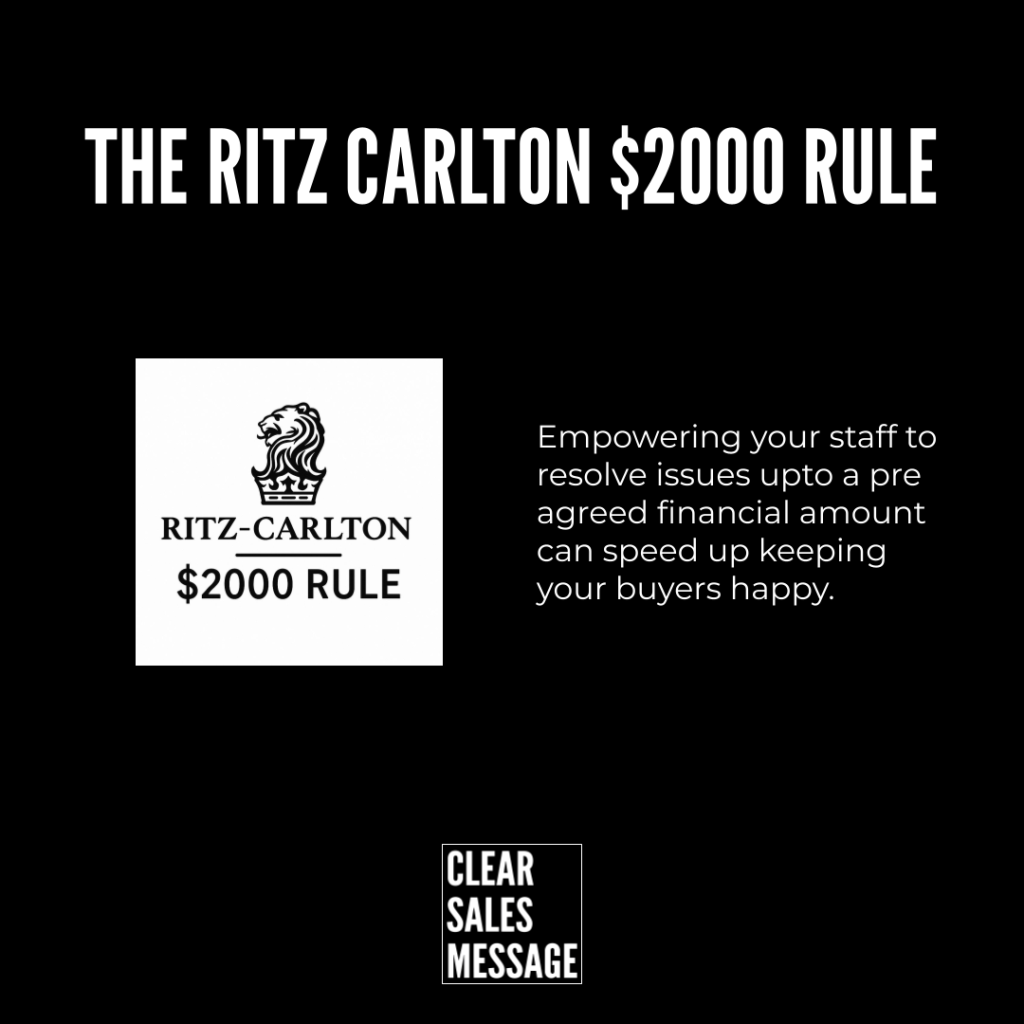Practical Sales Training™ > How To Keep Your Clients Happy > The Ritz Carlton $2000 Rule
How Does the Ritz-Carlton $2,000 Rule Work?
The $2,000 Rule works by removing bureaucratic hurdles that could delay or complicate a guest’s experience. Every employee, from housekeeping to front desk staff, is authorized to use up to $2,000 to fix a problem or enhance a stay without needing to ask a supervisor first.
Here’s how it plays out in practice:
-
A guest complains that their room is not ready upon arrival. An employee might offer them a complimentary meal or spa treatment while they wait.
-
A family loses their luggage on the way to the hotel. A Ritz-Carlton staff member could purchase replacement clothing or essentials on the hotel’s behalf.
-
A couple is celebrating their anniversary. A staff member might surprise them with champagne and chocolates in their room, all covered by this rule.
The power of the $2,000 Rule is not just in the amount. It is in the freedom and speed it gives employees to delight guests without multiple layers of approval.
While $2,000 sounds like a high number, the reality is that most gestures cost far less. But the policy ensures that if something big needs to be done to protect a guest’s experience or loyalty, the resources are there.
How Can You Use the Ritz-Carlton $2,000 Rule in Your Business?
You do not need to run a five-star hotel or have a $2,000 budget per customer to learn from the Ritz-Carlton $2,000 Rule. The principle behind it is simple: empower your team to solve problems quickly and delight customers without unnecessary red tape.
Here’s how you can apply it:
-
Set a spending limit. Define a reasonable dollar amount your team can use to fix customer issues or create surprise-and-delight moments without management approval. Even $50 or $100 can make a big impact.
-
Train for judgment. Teach your employees when and how to use their spending authority wisely to protect customer relationships.
-
Create a culture of trust. Let your team know you trust them to make decisions in the moment to keep customers happy, rather than waiting for permission.
-
Focus on loyalty, not short-term costs. View every complaint or problem as an opportunity to turn a frustrated customer into a lifelong fan.
By giving your employees more autonomy to resolve issues, you will speed up service recovery, deepen customer loyalty, and set your brand apart from competitors stuck in rigid processes.
See also



